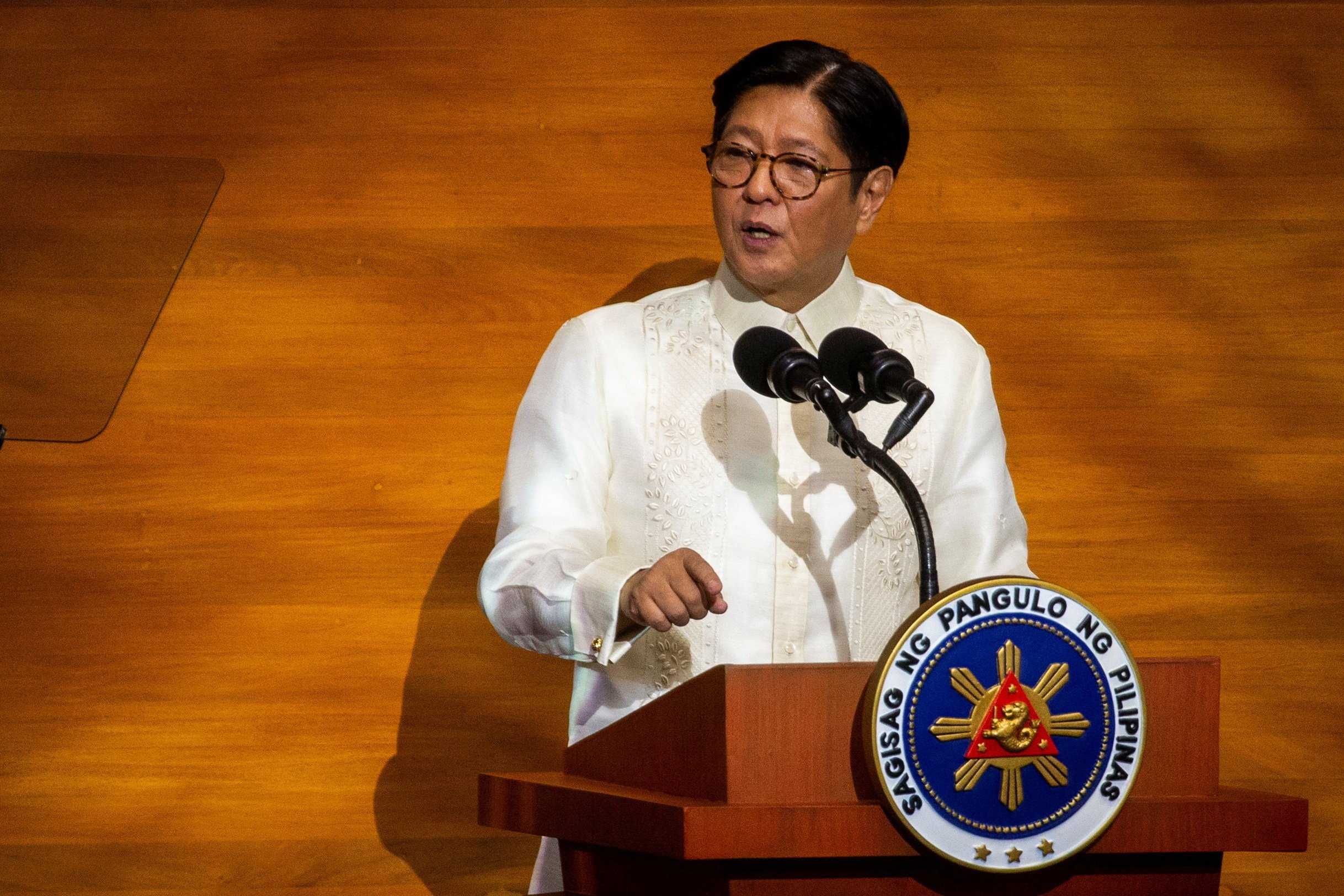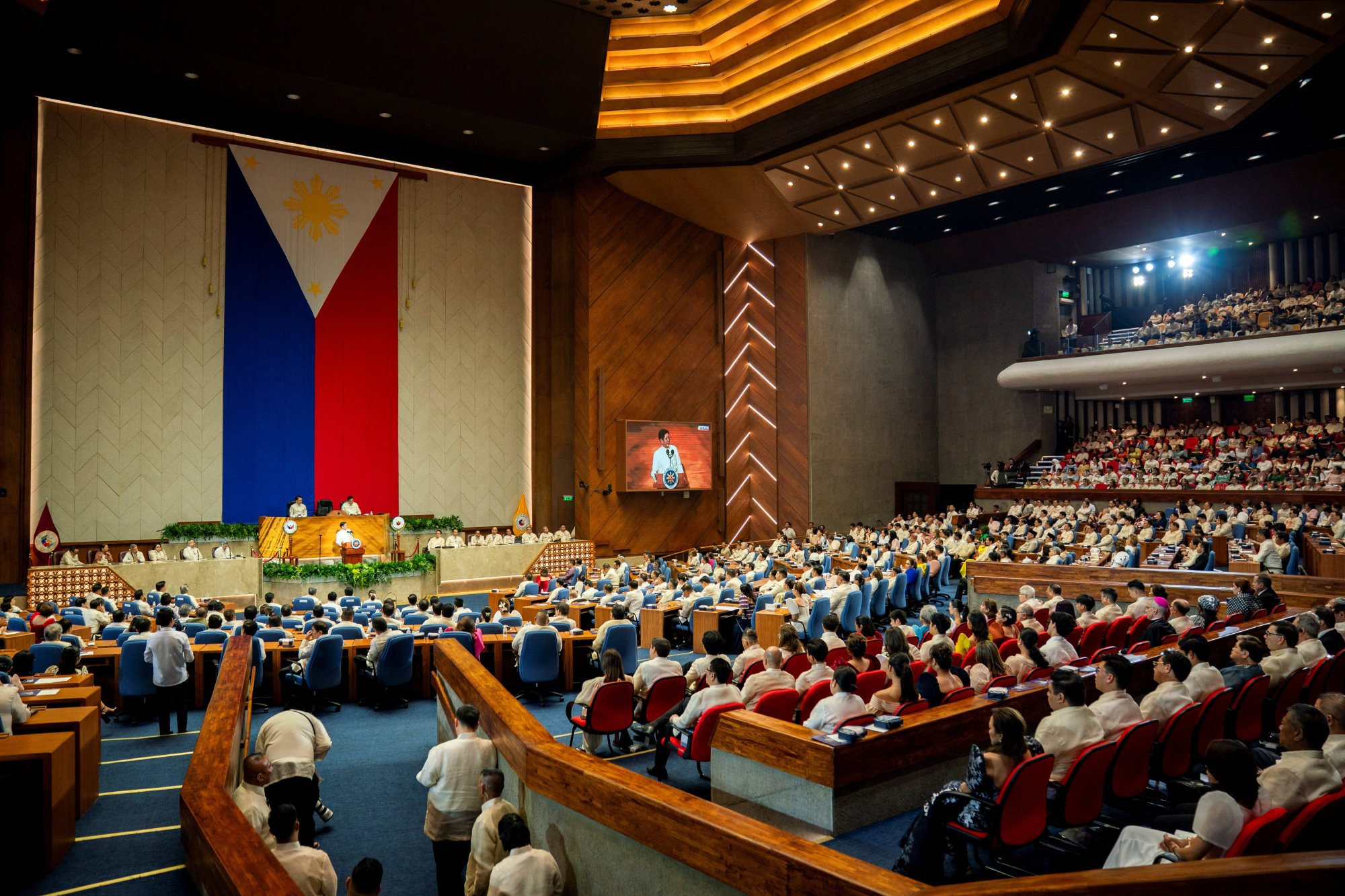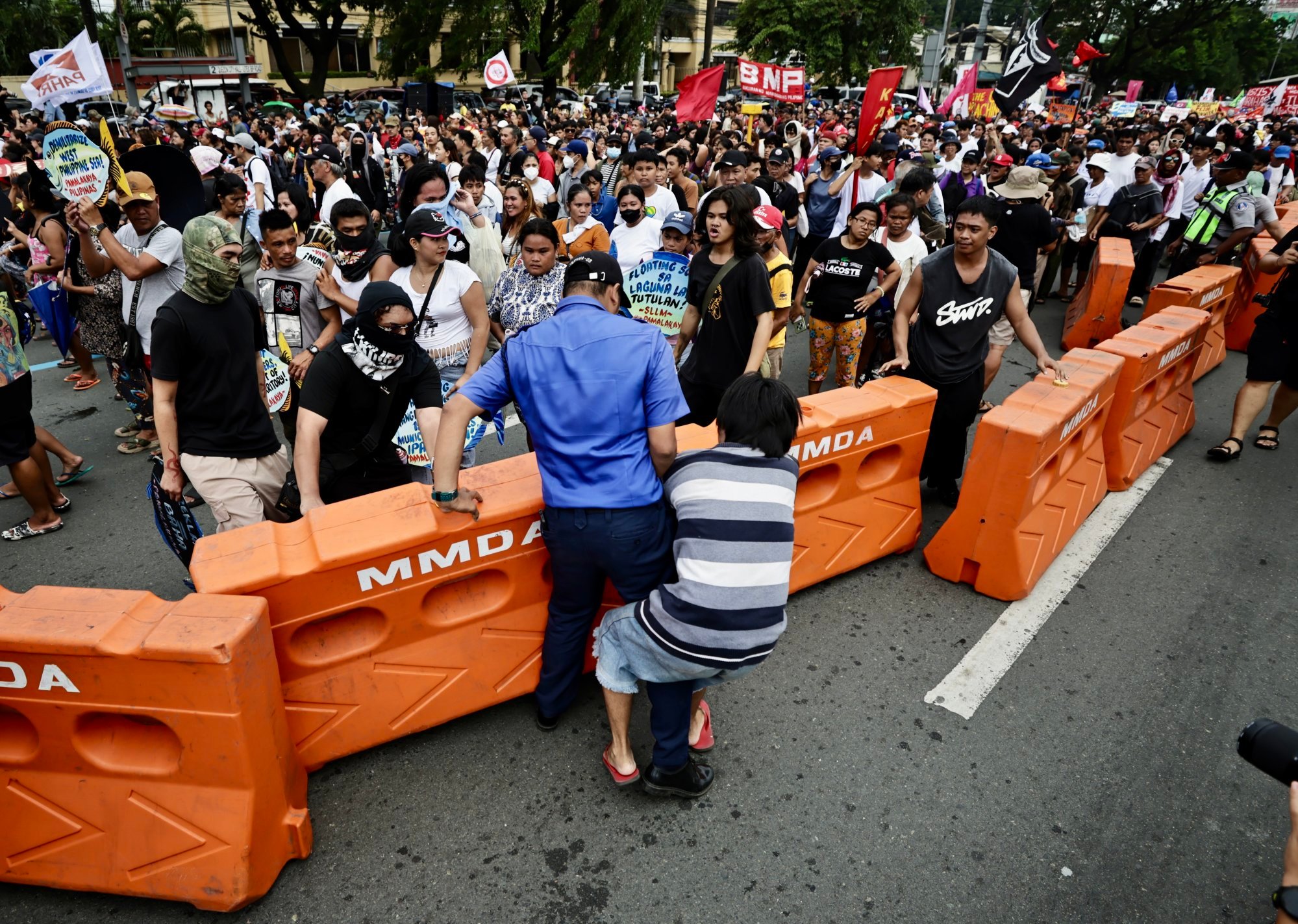‘You should be ashamed’: Marcos Jnr blasts corrupt officials in annual address
In his shortest Sona to date, the Philippine president mostly avoided talking about foreign policy issues

Philippine President Ferdinand Marcos Jnr delivered his shortest State of the Nation address (Sona) to date on Monday, as he mostly sidestepped foreign policy issues and used the occasion to launch a blistering attack on public infrastructure corruption.
During the speech that lasted an hour and 10 minutes, Marcos Jnr made no mention of China and referred to the United States only in passing. The focus on corruption and a lack of insight into external developments suggests a calculated bid by him to bolster his domestic support and avoid stoking tensions with other countries, according to analysts.
“Then as now, our foreign policy remains the same. The Philippines is a friend to all. The Philippines is an enemy to none. That will be our main focus as we, the Philippines, host the Asean summit in 2026.”
The president offered no comment on rising maritime tensions in the South China Sea, where the Chinese coastguard and militia vessels have repeatedly confronted Philippine forces in recent months.
His only reference to the US came in the context of Manila’s “debt” to Washington for helping in the modernisation of the Philippines’ police and military.
Vergel Santos, a veteran journalist and former publisher of BusinessWorld, told This Week in Asia that the president’s position was clear despite his short speech.
“I think he has made it clear enough he will resist China. And I can somehow understand he skipped the subject because it’s evident enough he has chosen to side with the US,” Santos said, noting that American forces now had access to nine military bases across the Philippines.
“If he dwelt on it, he could alienate the liberals and the progressives – the left,” Santos said.
Marcos Jnr also thanked Oman for its help in the return of Filipino seafarers captured by Houthi rebels in Yemen, the United Arab Emirates, Qatar, Bahrain, Kuwait and other countries in the Middle East that “have granted clemency and have shown kindness to our beleaguered compatriots”.

Corruption crackdown
Speaking at the Batasan Complex in Quezon City, the president lambasted corruption linked to flood control projects involving government officials and private contractors whom he said had earned “kickbacks, initiatives and ‘for the boys’ payoffs”.
“You should be ashamed of yourselves in front of your countrymen whose homes were flooded, and especially in front of our children who will inherit the debts you incurred for the money you pocketed,” Marcos Jnr said, with his emphatic speech drawing loud applause and a standing ovation from lawmakers.
Unhandled type: inline-plus-widget {“type”:”inline-plus-widget”}
“So this will not happen again,” he said, adding that he had directed the Department of Public Works and Highways to submit to him a list of all flood control projects during the last three years of his term.
“Second, the Regional Project Monitoring Committee shall examine that list of projects and give a report on those that have been failures, those that were not finished, and those that are alleged to be ghost projects.
“And third, we will publish this list” as such a move would enable the public to scrutinise the list and share their knowledge of the projects and kickbacks, Marcos Jnr said.
He also promised “an audit and performance review” of all flood control projects nationwide and that “in the next few months, those found to have pocketed the money will be charged, including the private contractors who connived with them”.
In conclusion, he warned lawmakers that “for the 2026 national budget, I will return any proposed general appropriations bill that is not fully aligned with the national expenditure programme”.
“I am willing to do this even if we end up with a reenacted budget. I will not approve any budget that is not in line with the government’s plan for the Filipino people.”

Santos said Marcos’ anti-corruption rhetoric was filled with irony because “he is himself a child of plunder,” referring to at least US$10 billion that his parents, the late dictator Ferdinand Marcos and mother Imelda, reportedly stashed locally and abroad.
In 1997, the Swiss Federal Court ruled that US$356 million of Marcos deposits in Swiss banks were “of criminal origin”.
In 2003, the Philippine Supreme Court ruled that the Marcos couple’s lawful income amounted to “US$304,372 and anything beyond that was ill-gotten”.
Following the death of Marcos in 1989, Marcos Jnr and his mother became coexecutors of the former president’s estate. To this day, the estate has yet to pay 203 billion pesos (US$3.9 billion) worth of estate tax.
“Needless to say, the first litmus test [for President Marcos] is what he will do with his own ill-gotten wealth, beginning with the 200-plus billion pesos he owes in estate taxes. I can only say, let’s see.” Santos said.
Aries Arugay, chairman of the University of the Philippines political science department, told This Week in Asia that Marcos Jnr’s attack on corruption was “out of his and his dynasty’s character”.
Marcos Jnr’s stance was probably “another performative moment like the cabinet revamp”, said Arugay, who was referring to the president retaining most of his cabinet officials during the reshuffle that followed the midterm elections in May.
While it was uncertain for now whether the list would be “truthful and comprehensive”, Marcos Jnr should elicit the help of the media and civil society to dig out the facts, Arugay added.
Ronald Llamas, a political risk analyst, lauded Marcos Jnr for taking such a step but noted with caution that “most of those politicians who gave the standing ovation are themselves involved in the anomalies of these thousands of flood control projects”.
“I just hope he finds it within himself the political will to go through with it, unlike his promise in his two previous Sonas to destroy cartels, hoarders and smugglers. I have still yet to see any of them charged and put in prison,” Llamas said.
There were several notable absentees at the Sona, among them were the president’s sister, Senator Imee Marcos; Vice-President Sara Duterte-Carpio; her brother, Congressman Paulo Duterte; the latter’s son, Congressman Omar Duterte; and Duterte-Carpio’s cousin, Congressman Harold Duterte.
Marcos Jnr made no mention of his ongoing quarrel with the Duterte family, nor his decision to send former president Rodrigo Duterte to The Hague to face alleged crimes against humanity during his war on drugs.
He also did not comment on the Supreme Court’s decision to block the impeachment trial of Duterte-Carpio days before his speech.
His cousin, House Speaker Martin Romualdez, retained his position after he received support from 269 out of 314 congressmen in a vote.
The president’s son, Ferdinand Alexander “Sandro” Marcos, was elected the House majority floor leader, the youngest in congressional history at the age of 31.
Senator Francis “Chiz” Escudero remained the Senate president with the Duterte bloc and some members of the Marcos bloc voting for him.